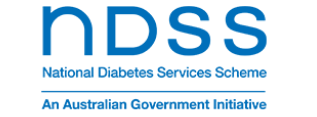It takes a team approach to support students to manage their type 1 diabetes in the school environment
Students with type 1 diabetes need a support network at school. So, it is important that parents or carers, school staff and health professionals work together to ensure that students with type 1 diabetes are supported while at school.
Meet the members of a student’s diabetes team
Parents or carers
Parents or carers of young people with type 1 diabetes have the overall responsibility for their child’s health and wellbeing. Parents or carers help make important decisions about their child’s health care and treatment, and advocate for their child’s best interests when working with other members of the school diabetes team.
Parents play an important role in making sure the school is informed and kept up to date on their child’s type 1 diabetes management. They work with principals, school staff and health professionals to ensure that everyone involved knows what is required to keep their child or student healthy, safe and be able to take part in all the opportunities of school life.
They provide schools with current diabetes management plans and work with the principal and school staff to determine the support and actions the school is able to make to help the student manage their type 1 diabetes.
Parents provide schools and health professionals with appropriate consent to ensure they can share the information they need.

Principals
Principals have an overarching responsibility for meeting and upholding the school’s legal duty of care, which includes ensuring that students with a medical condition or disability, such as type 1 diabetes, are safe and supported whilst at school. This includes implementing a safe system that protects students from foreseeable risks of harm. They also ensure that there are appropriately trained staff and other resources available to support the student’s health needs and meet the school’s legal obligations.

Schools
Schools have an important role in ensuring that students with type 1 diabetes experience a supportive and inclusive learning environment, and a key aspect of this is ensuring that their health and care needs are accommodated.
All school staff have a role to play in ensuring a safe environment for students with type 1 diabetes. All school staff should have a basic understanding of type 1 diabetes if there is a student with type 1 diabetes at the school, to enable them to recognise the signs of hypoglycaemia (low glucose level) and hyperglycaemia (high glucose level), and know what to do in an emergency.
Designated staff are identified by the principal and agree to be responsible for managing the health needs of a student with type 1 diabetes, including supporting a student to administer insulin. Staff do so by following the student’s diabetes management and action plans.

Health professionals
The care of young people with type 1 diabetes requires a team of specialised health professionals to help support and educate families and young people in type 1 diabetes management. The diabetes treating team recommends and oversees a young person’s clinical care and medical treatment.
The diabetes treating team also plays an important role in supporting a young person with type 1 diabetes to remain healthy and safe and able to participate in their school life. This includes working with parents or carers to develop a student’s diabetes management plan. The diabetes treating team will prescribe an appropriate treatment regime for the young person, which will be documented in the diabetes management plan in a way that helps schools to understand how to manage the student’s needs when they are at school.
As the diabetes treating team is best placed to understand a young person’s health needs, where possible, the diabetes treating team should provide or oversee training for school staff.



